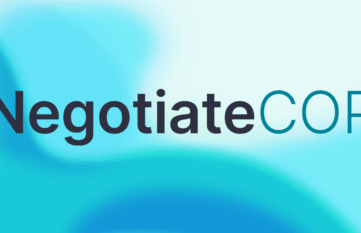A warm welcome, Anna Sophie Herken! You joined the Management Board of the Gesellschaft für Internationale Zusammenarbeit (GIZ) in mid-August. How have your first 100 days in office been?
I feel like I’ve been part of the GIZ team for a long time. I am so grateful for the warm and wonderful welcome I have received and for the support I got from the staff. One thing I can definitely say after 100 days: the GIZ team is really great! Of course, I still have a lot to learn. For example, how a federal enterprise works and how the rganization functions. Every rganization is different and it’s important to understand the informal aspects and the culture.
Apart from that, I am of course looking forward to returning to my professional roots and previous experience and being able to work more closely on specific projects in the partner countries. I worked for the World Bank in Washington on projects in India and Africa, then I was at the European Bank for Reconstruction and Development in London. During my time at the Federal Ministry of Economics, I worked on the UN World Summit on Sustainable Development, world trade and G8 issues.
One of your first trips in office was a visit to the Digital Transformation Center in Rwanda at the end of October. What impressions have you gained from your visit there and what characterises the work of the Digital Transformation Center in Rwanda?
It was the first visit to the external structure of GIZ and it was impressive. What a motivated and competent team! The meetings with the partners were also something really special.
And the variety of topics! The work of the Digital Transformation Center demonstrates how revolutionary and disruptive the digital transformation is changing our lives. Visiting the center also highlighted to me that there are many opportunities to learn from our partners. In the field of digitalisation, they are implementing innovations that would also be of great benefit to Germany and Europe.
From farmers acquiring digital skills, to primary school children learning important skills for the future in robotics lessons, to people with disabilities experiencing social participation thanks to a national strategy for digital inclusion.
I was also impressed by how many girls and young women are interested in digital technologies. Even though there is still a lot to be done to close the digital gender gap. Here, too, we can learn a lot from our partners.
At GIZ, you are responsible for the topics of digital transformation and Africa. How do you see the interlinkage between these two areas and what are the most pressing issues from an organisational perspective?
The African societies are also undergoing a profound digital transformation and digitalisation will play an important role simply because of the enormous demographic changes. Whether in education, jobs, access to health and many more.
In Rwanda and Nigeria, I have seen the incredible opportunities offered by digitalisation. However, this is exactly why it is also important to create the right regulatory framework. The desire for digital sovereignty is constantly growing and the importance of digital policy will continue to increase in the coming years. The upskilling of policymakers and open data markets are fundamental requirements for open questions and cooperation in the future. I spoke about this topic with representatives of Smart Africa at the end of November.
Another important aspect is that topics can no longer be viewed in isolation, but rather networked solutions are increasingly in demand. It also means that we need to think in a more interconnected way and anticipate as well as address interrelationships. Data and data strategies play an important role in this process. To achieve these goals, we need to integrate digital solutions into our DNA.
In your opinion, how must GIZ position itself to contribute to shaping the digital transformation worldwide, both internally and in cooperation with its partners?
Digitalisation will continue to change our society. It affects every aspect of our lives and our work.
Digitalisation offers enormous opportunities, but also challenges. We need to think holistically in everything we do and drive forward a digital strategy that combines internal processes with the provision of services.
Above all, we need to think now about what our environment will look like in the future and what impact digitalisation will have on us. How can we position ourselves so that we can offer added value in the future? What will our partners need? How can we differentiate ourselves with digitalised offerings? One example is the discussion about artificial intelligence. We need to make sure that we position ourselves strategically and recognise what this means for us and where we can position ourselves innovatively.
To conclude, a personal question: If you were stranded on a lonely island, without which three apps you couldn’t live?
A lonely island with Wi-Fi and power for my mobile phone sounds great! I would take Headspace and a fitness app with me because then I would finally have time to start exercising and meditating. I’ve been wanting to do that for years. And maybe a wilderness survival app so I can learn how to build a boat to get back to my children.



